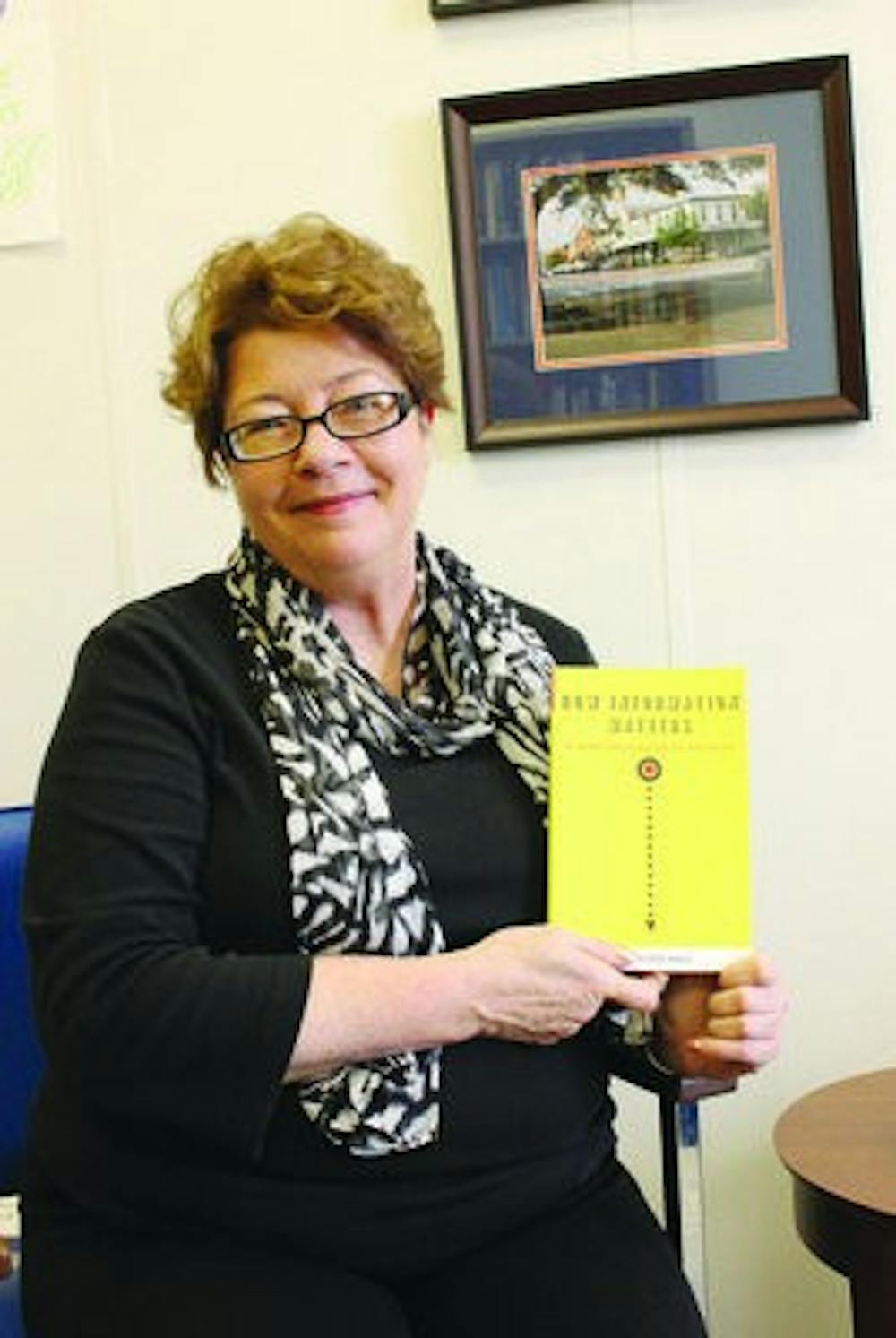For six years Kathleen Hale has taught her students to keep an open mind and be ready to question the ever-changing environment that is the real world.
"My most effective teaching skill would have to be ambiguity," said Hale, associate professor of political science. "I challenge my students to understand that the work world and the life world they will encounter is ambiguous.
"The tools we provide them with here at Auburn will help them know how to properly address any obstacle they encounter."
David Adams, graduate student in the Department of Political Science, said it's this encouraging teaching method that makes Hale stand out among other faculty.
"Dr. Hale has the ability to let her students find solutions to their problems without giving absolute direction," Adams said. "It's more of a seek-and-discover teaching style."
Jay Lamar, director of the Caroline Marshall Draughon Center for the Arts and Humanities, said Hale is an extraordinary professor.
"I have sat in on some of her classes last spring, and she has made me want to be a student all over again," Lamar said. "She has a way of helping her students realize things on their own as opposed to just giving them the answers."
Lamar said Hale's latest book, "How Information Matters: Networks and Public Policy," is a key contribution to the field of information systems and public policy.
"This widely praised book details how systems interact and produce solutions," Lamar said. "She accomplishes this by taking extremely dense information and translating it in a way for those of us who aren't as familiar with the inner workings of laws, economics and political science as she is."
Hale said her ongoing research investigates how and why networks of organizations-- primarily nonprofit organizations--form, how they interact and how the information they generate produces change.
"I was inspired to write this book from my lifelong love affair with nonprofit organizations--from the work I did with them, around them and for them before I came to Auburn," Hale said.
Lamar said it was these shared interests that attracted her to Hale's book and the work she has done with nonprofits.
"We have worked together on many committees at the University, such as some community and civic engagement initiatives," Lamar said. "I also became very interested in her work with nonprofits because of the interaction we at the outreach center have with nonprofit organizations and other cultural entities."
Lamar also said she and Hale are currently working on a concept committee to develop a curriculum tract for students to teach them how to work with established nonprofits.
"My book refutes the stereotype that nonprofits are 'slacker' organizations, and it investigates what these organizations do and how they go about producing change," Hale said. "It also discusses how nonprofits produce a platform for improvement."
Hale said one of the most exciting parts of her book is when she discusses how the works that nonprofit organizations foster actually build new knowledge and new capacity for organizations to become better.
"I feel that this is a key feature of what they can offer to government," Hale said.
For more information on her book, email Hale at halekat@auburn.edu, or pick up a copy of "How Information Matters" at the bookstore.
Do you like this story? The Plainsman doesn't accept money from tuition or student fees, and we don't charge a subscription fee. But you can donate to support The Plainsman.





